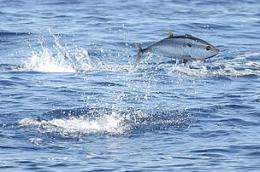Social and economic well-being of Mediterranean under threat by demand on environment, says new report

The Mediterranean region is using two and a half times more natural resources and ecological services than its ecosystems can provide, eroding the region's economic security and countries' capacities to guarantee the well-being of their citizens, Global Footprint Network reports in a two year study.
Global Footprint Network and UNESCO, with the support of the MAVA Foundation and the collaboration of WWF Mediterranean released the study's findings at a conference in Venice.
The report, Mediterranean Ecological Footprint Trends, shows that by 2008 the region's Ecological Footprint – the demand on Earth's bioproductive land and sea areas –exceeded local available ecological assets by more than 150 percent.
Between 1961 and 2008, the most recent year data were available, growing population and consumption trends tripled the region's demand for renewable resources and ecological services.

"It is vital that our societies recognise that investing now in tackling environmental issues and safeguarding natural capital in the Mediterranean will sow the seeds for sustainable economies in the future. Sustainable economies, security and cultural dialogue won't be achieved without a healthy Mediterranean environment," said Paolo Lombardi, WWF Mediterranean Director.
With possibly one exception (Montenegro), every country in the Mediterranean region has now moved from ecological creditor to debtor status, and demand more of Earth's renewable resources than are locally available. Countries meet their ecological deficits through trade and overexploiting their own ecosystems.
The study also found that in less the 50 years, the Mediterranean region nearly tripled its demands for ecological resources and services, and increased its ecological deficit by 230 percent.
The higher the income of a country, the greater was its demand for ecological resources and services (and the higher its per capita consumption). Three countries alone contributed more than 50 percent of the region's total Footprint in 2008: France (21 percent), Italy (18 percent) and Spain (14 percent).
Algeria experienced the largest change in national ecological assets balance, moving from a large reserve in 1961 to a large ecological deficit in 2008. Syria, Tunisia and Turkey also shifted from ecological creditor to debtor status during this period, while the other Mediterranean countries saw a worsening of their ecological deficits.
Portugal was the sole country to have significantly narrowed its ecological deficit in recent years (an 18 percent per capita decrease between 1998 and 2008). But the country's per capita deficit is still higher than the regional average.
More information: www.footprintnetwork.org/med
Provided by WWF



















